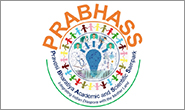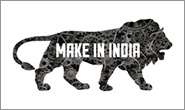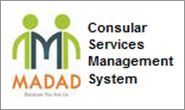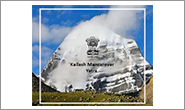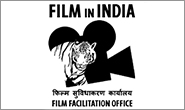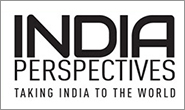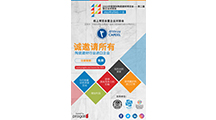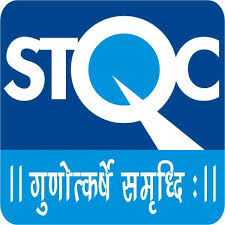Ambassador Raghavan, Director General, Indian Council of World Affairs,
Professor Xie Fuzhan, President, Chinese Academy of Social Science,
Ambassador Luo Zhaohui, Vice Foreign Minister of China,
Prof Wang Lei, Director General, Bureau of International Cooperation, Chinese Academy of Social Science,
Scholars, researchers and experts from both India and China,
Good morning to you all.
Most of the speakers have already enumerated the increasing engagements between our two countries, especially in the last two years. Allow me express some key points.
The Forum was established in 2015 and has met every year since 2016. The forum has also given opportunity to the think tank community from both sides to engage in a frank and expansive discussions on various topics which directly affect our relations and also provide an opportunity to set the agenda and steer the future course of our engagement.
Ladies and Gentlemen,
Interaction between scholars and academics holds a special salience, not only from a policy recommendation perspective for the governments, but also in the larger context of promoting discourse between the two societies.
It is for this reason that in the last High Level Mechanism meeting on people-to-people exchanges in Beijing in August 2019, engagement between the Thinktank communities was recognised as one of the 10 pillars of people to people exchanges. In fact DG ICWA had attended the meeting to convey the major recommendations of Indian thinktank community to the two Foreign Ministers.
Ladies and Gentlemen,
It is important to understand that this century undoubtedly belong to India and China. With one large population it is an undeniable fact that the world is looking at these two large countries as potential market and land of opportunity.
We need to understand our strengths and build mutually beneficial relations like true civilizational states. It is not surprising that for countries of our sizes, we have issues and dimensions in our relations which need careful handling with certain degree of sensitivity. As our leaders have successively shown in their Informal Summits that both countries have much to gain in understanding each other’s sensitivities and ensuring that we prudently manage our differences and ensure that our differences on any issue does not become a dispute.
The leaders have given a strategic direction to our expanding multifaceted relations and reinforced the fact that our roles are steadily increasing in the global stage. They have also been encouraging our systems at all level to engage in strategic communications so that we handle all issues in a positive, pragmatic and open manner.
We both share the common objective of addressing our developmental challenges. We have common understanding when it comes to international issues such as international peace and security, climate change, sustainable development goals or reform of major international organisations such as United Nations, including its Security Council or WTO.
The importance of concerted fight against terrorism is not lost between the two countries. There is much greater cooperation between the two countries in recognising the menace of terrorism and the need to resolutely act against training, financing and supporting terrorist groups throughout the world in an non-discriminate manner. We cannot have double standards in dealing with this issue and world has to work with determination to ensure that we provide for our people peaceful, secure and prosperous world.
Ladies and Gentlemen,
One of the key focus of this forum will be to deliberate on an important pillar of our bilateral engagement, that is the people to people exchange. We have not come up to the standards set by our forefathers when it came to such engagements. Himalaya or long sea journeys did not deter people millennia ago to travel the long distance which, nowadays, can be covered in few hours time. We seriously need to work in a very deliberate manner to promote greater people to people exchanges, especially tourists, students, media and youth. The current visits by tourists to each others countries is not adequate enough. We need to actively promote and work together to encourage exponential increase in movement of tourists in the coming months.
In this context, we are happy to inform that both India and China has jointly worked on an exhaustive list of 70 activities covered wide spectrum of our relationship, to be undertaken next year, to celebrate the 70thanniversary of establishment of diplomatic relations. The 70 activities is only a notional number to make it symbolic. The actual number of activities will be far greater than that. It goes without saying, thinktank exchanges have a prominent position in this list of activities.
Yet another aspect of our relations is our economic and commercial engagement on trade has increased from a mere 3 billion US$ to more than 95 billion US$ in the last 18 years. Along with this phenomenal increase in the bilateral trade there is a politically challenging trade deficit for India. Last year the deficit in our bilateral trade was close to 60 bn US$.
Hence, it is important to work towards some systemic solutions which can provide long term resolution so that we reverse this trend of growing trade deficit. While both countries may have their own logic and argument for the current situation, but there is a need to understand the larger implication of negative characterisation of this issue by the people, if the governments are not able to demonstrate concerted action.
In this context, we are happy that both leaders agreed in the Chennai Informal Summit to set up a high level mechanism on economic and trade dialogue at the level of vice Premier on the Chinese side and Finance Minister on the Indian side. There is also a need to work towards mutual investments in identified sectors through a manufacturing partnership framework.
Ladies and Gentlemen,
We have a very interesting and varied agenda in this edition of the forum. Here, I would like the forum to consider the following as practical suggestions for the future.
Firstly, we should use this forum to engage more and more young scholars in our deliberations. I am happy to see young scholars amongst us. But we need to encourage more of them. One option is to consider inviting young scholars to listen in the future deliberations by making the proceedings of the forum open to a larger audience. We could also consider adding question and answer sessions for such audience who are listening in the deliberations.
Secondly, we should look at the option of identifying teams of researchers, one each from India and China, who could consider undertaking joint research on topics of interest which can be jointly decided by ICWA and CASS. This will help in developing greater understanding as well as cooperation among young scholars to work with partners from other countries. Such engagement will allow the scholars to open their mind to logic and perspectives of their partner. The quality of such output will be more engaging and practical.
Thirdly, there is a need to develop a network of scholars, who are studying about India and China as well as the bilateral relations. In addition, scholars who are focusing on regional and international issues with focus on South Asia and East Asia could also be part of this network. Both ICWA and CASS could consider working out modalities for such a network which could be virtually set up in cyberspace. This could be an inclusive network, where participants could share views, resources and organise virtual meetings on topical issues.
Fourthly, we should consider identifying research works which could be considered for translation and distribution in each other’s countries. We need not spend too much resources in printing such books or research papers but could consider establishing a virtual library operated by ICWA and / or CASS, which could also feed into the deliberations of thinktank forum. This will help bridge the gap of making aware some of the good research work which have been done in each other’s countries about each other. we need to start a building body of literature about India and China and need to see each other from our own perspective rather than from the eyes of western scholars.
Fifthly, we should consider reciprocal short term visit or internship of 3 months or 6 months by young scholars in each other’s research centres to undertake research work. This will also help them to work on their own doctorate or post doctorate thesis. Such field experience will help to better understanding and perspectives of our young scholars, and put our relations in the right context and firm footing.
Therefore, we need to ensure that proceedings of this forum is captured in the form of any publication so that wider audience can benefit from it.
Let me conclude by conveying on behalf of Embassy of India in Beijing our best wishes for this forum. We look forward to engaging discussions and deliberations.
Thank you.
****

















